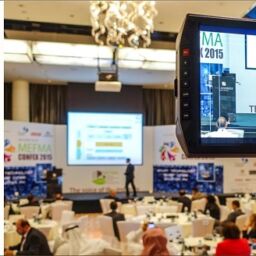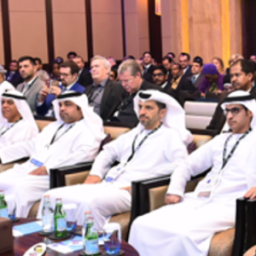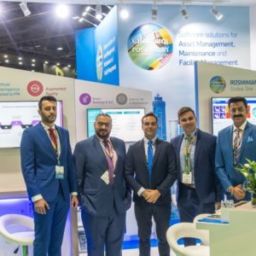
The International Facility Management association (IFMA), in order to demonstrate to society that the Facility Manager role is key to profitability and productivity of companies, regularly conducts interviews with relevant people in the sector.
On this occasion, IFMA has interviewed our CEO, Antonio Ramírez Mayo, and here is the result:
How important do you consider Facility Management (FM) in your company?
From our more than 25 years of experience in the IT sector and as software developers, we consider FM our main line of approach; we invest a large part of our R+D+i budget in developing solutions that facilitate the management, sustainability and safety of infrastructures, buildings and spaces, in high-availability environments, with the aim of helping our clients in their digital transformation, keeping them constantly updated in technology. All this, from simplicity, efficiency, on an affordable basis, adding value to each involved element, from daily operations to management and process optimisation, with the contribution and transfer of knowledge to our current and future clients.
How do you evaluate the work of the Facility Manager during 2020, including the pandemic?
2020 was a particular year that forced us to bring out the best in ourselves. From the professional field, there are sectors that have been forced to take a step forward in the management of the pandemic and the health sector is the first that comes to mind; However, all infrastructure (including those related to health) has had to be adapted to allow a “normalisation” of work activity, guaranteeing operational continuity and reducing and/or eliminating risk to its workers. This is where the FM has contributed fundamentally to minimise the impact of the pandemic.
Highlight an initiative in which the work of the FM area has been evident
More than an initiative, it has been the visibility that the Facility Manager role has gained in certain companies and institutions and how this has led it to reinvent itself in order to overcome the challenges that COVID-19 has brought: the digitisation of space management, the relevance of soft services and their frequency, the measures to adapt air conditioning equipment, the reorganisation of operations, health & safety processes, etc. All these initiatives existed in minds of all FMs prior to the pandemic and now, given their criticality, they have had to be deployed urgently, making our infrastructures and working environments much safer.
What priority has your company set this year in the FM area?
Our goal is to keep developing cost-efficient solutions for the FM industry and its professionals, allowing universal adoption and use of technologies that allow digitising FM at the highest level with the benefits in productivity, costs and safety that this entails. I always remember William Thomson Kelvin’s quote: “What is not defined cannot be measured. What is not measured, cannot be improved. What is not improved, is always degraded” and, if part of the FM purpose is to avoid degradation: what better way than to provide them with tools that facilitate the measurement and, consequently, the improvement of all elements and processes subject to its management, from a global vision of all activities and services related to assets managed by them?
What is the main future challenge faced, in general, by the Facility Management Services department of your company?
Being a technology provider company and having many of our workers in different locations, we may not face the same challenges as those that other companies operating in the FM services field might face. However, we have had to modify internal dynamics and processes in which human interactions must be managed differently than it was before the pandemic. Although, remote operational continuity was something we were already prepared for, thanks to the nature of our business and markets to which we offer our services.
Which initiative, linked to FM, would you highlight from those undertaken by your organisation and which ones have been key to its success?
Space management in our HQ and branch offices, since, having most of the staff relocated, many of the workstations were shared and could be used by different people throughout the day; Therefore, beyond the remote work that today most of the employees carry out, in those imponderable cases in which it is necessary to go to the offices, schedules, boundaries, hot zones, disinfection protocols and a long list of measures have been implemented with great success, thanks to our own and our partners’ technological solutions, which have allowed our staff to continue working without having reported the first case to date.
What would you say to those CEOs who, up until now, have not yet implemented FM in their organisation?
FM is no longer perceived simply as an operational support field; it is a field with measurable (direct and indirect) return and with a strong impact on the companies’ income statement and perception of their staff, both internal and external. Today, the well-being of employees and how it affects their productivity is a key point, the condition of infrastructures and assets, and its impact on the costs of shutdowns or downtimes, service enhancement, occupational health & safety and regulatory compliance, energy management and the impact of our carbon footprint, etc., are realities that are best dealt with specialised personnel in FM and their positive impact is maximised if they are provided with appropriate technological tools. As informative fact, some of our clients have achieved savings of more than 20% per year not only in operating accounts associated with FM (assets, guarantees, optimisation of spaces and services, downtimes, maintenance, etc.) but have also improved the perception of users and workers on company’s management.
About IFMA España
 The International Facility Management Association (IFMA) is the largest professional association in the field of property management and boasts the highest international recognition and prestige.
The International Facility Management Association (IFMA) is the largest professional association in the field of property management and boasts the highest international recognition and prestige.
IFMA was established in 1980, as a non-profit association, whose objective is to promote Facility Management. IFMA identifies new trends, conducts research, offers training programs, and helps companies develop strategies for the management of human and physical resources (buildings, assets and furniture). Currently, the association has about 20,000 members, represented in 18 chapters and in more than 60 councils.
FMA exists for those who are dedicated to property management, for those who have this outsourced function and for those who provide services related to this field. Its mission is to represent all these professionals, lead and promote trends and advances in the sector, as well as reinforce and further develop its knowledge base.



